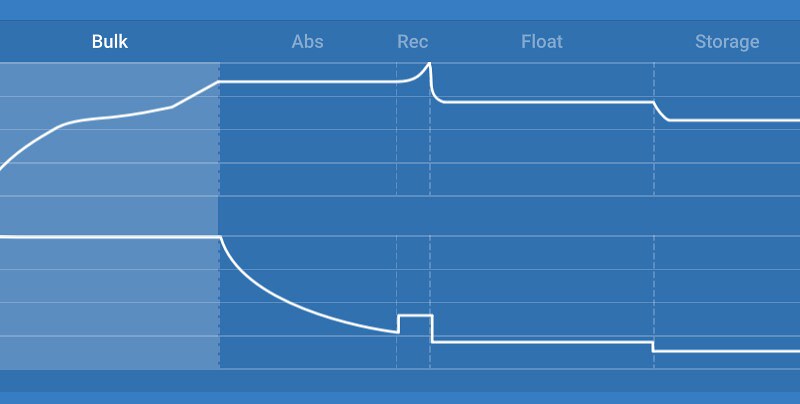Hi. Now I am even more confused. 1+1=2.7 so is that better or worse , my mhome is an autotrail Cheyenne. Se660. 2006. I purchased this second hand. It has lots of extras .half of which I am still trying to understand,, it has a
solar panel. As to size. Wattage no idea. Cannot find any leaflets. (Unfortunately. The owner was deceased and it was sold on his partners behalf) All I know at the moment is on ehu. 13.2v reading , take it off ehu , travel 300 plus miles.
Battery display shows 12.2. Next morning after hardly any use.
Battery reading. 10.7. So I presume
battery/
battery's are duff,do not want to buy two new batteries fit them. And then find that it needs a different something as it is
solar/ehu/
battery Halfords say
battery's are fine, Autotrail not very helpful,,, lots of the forums have so much contradictionary info So far most of this forums info seems good, Do not want to ask to many different forums as have been reading them and some people were complaining that same questions were appearing on different forums and people should stick to one forum, Not complaining just trying to understand. Am definitely a bit of a thicko. Ooh wife just said that I am more then a bit. So change that too a lot of a thicko.
right now I think a good first step is knowing what kind of "split charger" you have. If it IS one that that is not treating the batteries ideally, then any new batteries will also not be getting the best treatment.
Bit of a
Battery 101, as the americans may say ....
when charging a
battery, it goes through different phases to get to its full 100% charge. This Diagram from
Victron shows the pattern very well.

Battery Charging Pattern by
David, on Flickr
The top line represent the Voltage Level & the bottom line represents the Current Level.
In the BULK mode (which is typically when the
battery is at around 80% of charge or lower, the
battery takes as much charge as the charger can provide, and the voltage gradually rises until it hits around 14.4V.
Then at around this 80% full level, the
battery goes into ABSORPTION (ABS) mode. The Voltage stays at around 14.4V and the current starts to fall away as the
battery starts to fill up (if you like an anology, think of having to turn a tap down as a water container is nearly full in order to fill to the brim).
The problem you can get with a basic Split Charge Relay AKA VSR (Voltage Sensing Relay) is that a vehicle alternator typically peaks at around 13.8V (some go higher, some are lower).
As I said, to get to 80% full and beyond, the voltage needs to rise to 14.4V. If your alternator goes no higher than 13.8V, then you will never get to the 80%, let alone 100%.
How to tell if you have a basic Relay system? Check the voltage on the Leisure
Battery when the engine is running, and also at the same time check the Starter
Battery. If the two are pretty well the same and never go above 13.8V (or so), then chances are you have a Relay setup. If the Leisure
Battery starts to go above the Starter
Battery, then you have some kind of intelligent
Battery to
Battery (B2) Charger (which would be great news).
A quick easy rule or thumb checkpoint: Because of inevitable Voltage losses in the cabling,
IF you have a relay system, you are unlikely to ever see the Leisure
Battery Voltage higher than the Starter
Battery.
If you have a B2B Charger, the Leisure
Battery Voltage will usually be always
above the Starter
Battery Voltage.
The above is for when the Engine is running of course

(and no other chargers active, like
Solar or EHU)
Overall, it doesn't sound like your setup is that healthy, so it is definately worth tracking down what you have fitted before spending any money on replacing anything. given your Motorhome is from 2006, all sorts of changes could have been made in the past due to repairing failed items or upgrades so I wouldn't rely on any manuals or specs as gospel.
NOTE: the numbers above are for typical batteries and setups. There are some weird batteries out there which will have different values and requirements, so it IS possible you have one of those, so bear that in mind when troubleshooting.

